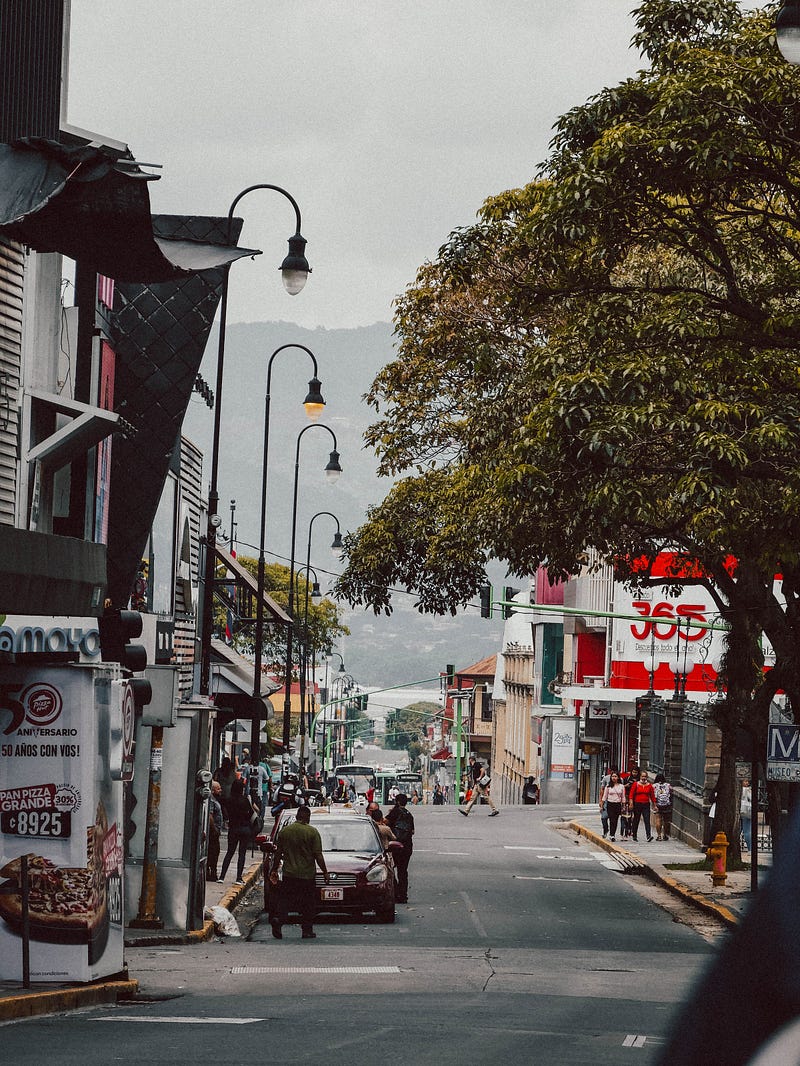Europe's Double Standard: Exporting Banned Pesticides Abroad
Written on
Chapter 1: The Water Crisis in Costa Rica
In Costa Rica, water tanks are constantly in motion, striving to deliver clean water to towns like Cartago. This ongoing effort is a response to alarming contamination found in local water sources, attributed to European pesticides.
A year prior, in winter 2022, concerned residents of Ciprese, Costa Rica, sought testing for their tap water due to a suspicious white foam and strong chemical odor near their springs. They approached a local laboratory affiliated with the National University of Costa Rica, which graciously conducted the tests at no cost. Unfortunately, the findings confirmed their fears: the water contained chlorothalonil residues at levels exceeding legal limits by 200 times. This fungicide, in use since the 1960s, is widely employed by farmers to combat mold and mildew.
Following these revelations, the government swiftly took action, shutting down water springs in the area. By April, over 65,000 residents in Cartago were affected by contaminated water supplies. Local farmers were taken aback, unaware of the health risks associated with chlorothalonil, which had been a popular fungicide in Costa Rica from 2012 to 2020.
The government's lack of a systematic approach to detect such residues in the water supply was evident, stemming from inadequate technological resources for large-scale testing. Despite prior warnings regarding chlorothalonil's dangers, particularly in Europe, these concerns were largely unheeded.
In March 2019, the European Union (EU) made the decision to ban chlorothalonil due to safety issues. Critics, such as the UK's National Farmers Union, claimed that the EU acted excessively cautiously, but the ban was rooted in a review by the European Food Safety Authority (Efsa). This review raised serious alarms about the potential DNA-damaging effects of the chemical's breakdown products, alongside its classification as a probable carcinogen and its detrimental impact on amphibians, fish, and bumblebee populations. Consequently, the pesticide was banned in May 2020, with Switzerland following suit.

Chapter 2: Europe's Export Dilemma
Europe's pesticide regulations are often contentious, pitting agricultural interests against public health advocates. A closer look reveals a troubling paradox: since the chlorothalonil ban, Europe has emerged as a major exporter of this hazardous pesticide to Costa Rica, where residents are grappling with safe water access.
According to investigations by Greenpeace and Public Eye, from 2020 to 2022, Syngenta, a Swiss pesticide giant, accounted for over a quarter of all chlorothalonil imports into Costa Rica. Notably, Germany, Italy, Belgium, Denmark, and the UK have all been involved in exporting this banned substance since 2019.
Despite the EU's ban, reports surfaced from France and Switzerland indicating significant chlorothalonil contamination in drinking water, an issue that persists today in France. In fact, in 2022 alone, nearly 900 tons of various banned pesticides were exported from the EU to countries like Egypt, Algeria, and Guatemala.
This situation reflects a broader trend: European nations have been exporting various hazardous pesticides to lower-income countries for years, where regulatory oversight is minimal. The absence of laws prohibiting the export of banned chemicals from Europe exacerbates this hypocrisy, allowing the continued production and sale of known environmental pollutants abroad.
While the European Commission pledged to ban such exports in 2020, it has been unable to enact this policy due to pressure from the chemical industry, as reported by Le Monde. France, however, took a bold step in 2022 by becoming the first country to impose a national ban on exporting chemicals prohibited in the EU, including chlorothalonil. Despite some challenges in enforcement, this law represents a significant move toward curbing these exports, although loopholes remain.
Germany and Belgium are now contemplating similar measures, but no legislation has yet been finalized. In the meantime, the export of banned pesticides continues unabated.
Export of banned pesticides and hazardous chemicals: Why do EU-policymakers need to act and how?
This video discusses the critical need for EU policymakers to address the ongoing export of banned pesticides and the implications for global health.
Ban Importation of Chemical Pesticides Banned in UK and Europe into Kenya
This video explores the challenges and arguments surrounding the importation of pesticides banned in the UK and Europe into Kenya, highlighting environmental and health concerns.